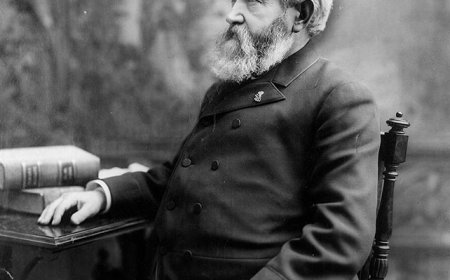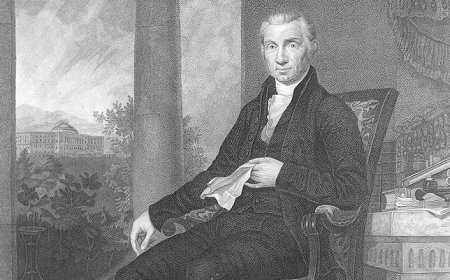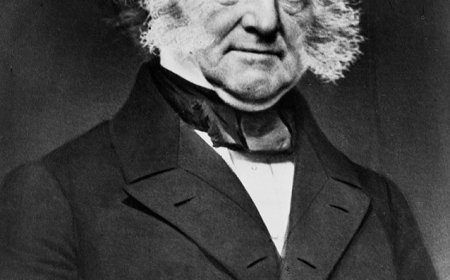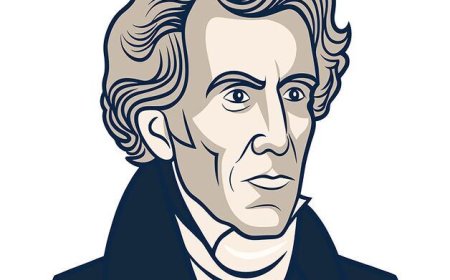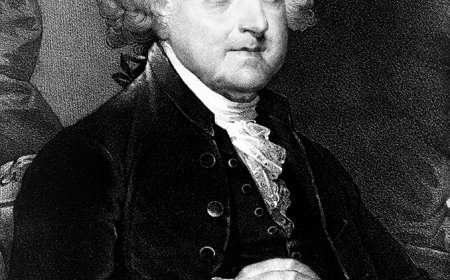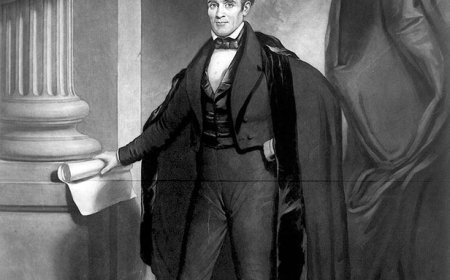Woodrow Wilson Biography for Students the 28th President
Learn about Woodrow Wilson, the 28th President of the United States. Discover how he led America during World War I, introduced progressive reforms, and created the League of Nations—plus vocabulary, fun facts, a quiz, and a kid-friendly summary.
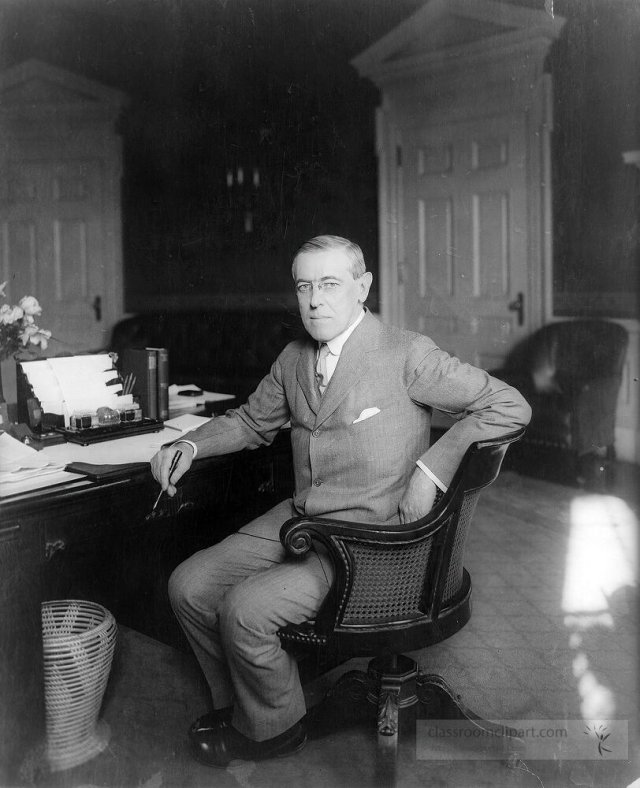
🇺🇸 Woodrow Wilson Biography for Students the 28th President
🧭 Introduction
Woodrow Wilson was the 28th President of the United States, serving from 1913 to 1921. He led the country through World War I and introduced major progressive reforms at home. Wilson believed in using government to improve society, and he worked to make the world more peaceful after the war. Though admired for his vision, he also faced criticism for his actions on civil rights and how he handled people who disagreed with him. His presidency left a lasting mark on both America and the world.
👶 Early Life and Education
Thomas Woodrow Wilson was born on December 28, 1856, in Staunton, Virginia. He grew up in the South during and after the Civil War. As a child, he struggled with reading, possibly due to dyslexia, but he overcame it through hard work and became a strong student.
Wilson earned advanced degrees, including a Ph.D. in political science, making him the most educated president in U.S. history. He became a college professor, president of Princeton University, and later Governor of New Jersey.
🏛 Political Career Before Presidency
Wilson entered politics late in life but quickly became a national leader. As Governor of New Jersey, he fought corruption and promoted progressive reforms, like fairer taxes and better labor laws.
In 1912, he ran for president as a Democrat and won against former President Theodore Roosevelt (Progressive Party) and William Howard Taft (Republican), thanks to the Republican vote being split.
🇺🇸 Presidency Overview (1913–1921)
Wilson served two terms as president. His leadership is remembered for two major themes:
- Progressive reform at home
- Leadership during World War I
He believed in a strong but fair government and wanted to improve the lives of ordinary Americans.
⚖️ Progressive Reforms and New Laws
Wilson helped pass many laws that changed American life. These included:
- Federal Reserve Act (1913): Created the Federal Reserve System, which helps manage the U.S. money supply and banking
- Clayton Antitrust Act (1914): Strengthened laws against unfair business practices
- Federal Trade Commission (FTC): Watched over businesses to make sure they followed fair rules
- Child labor laws and shorter workdays
- Graduated income tax (more income = higher tax), allowed by the 16th Amendment
These reforms aimed to protect workers, consumers, and the economy.
🌍 World War I and International Leadership
In 1914, World War I broke out in Europe. Wilson kept the U.S. neutral at first, but in 1917, he asked Congress to declare war on Germany after repeated attacks on U.S. ships.
Key events:
- U.S. troops helped the Allies (France, Britain) win the war
- Wilson gave his famous Fourteen Points speech, a plan for lasting peace
- He led the creation of the League of Nations, the first international group designed to prevent future wars
Wilson traveled to Europe for the Treaty of Versailles talks—the first time a U.S. president visited Europe while in office.
🧠 The Fourteen Points and League of Nations
Wilson’s Fourteen Points were ideas for a better, safer world. They included:
- No secret treaties
- Freedom of the seas
- Fewer weapons
- Fair treatment of colonies
- The League of Nations—a group of countries working together to keep peace
Wilson’s dream was that the League would stop future wars.
But the U.S. Senate refused to join the League, fearing it would drag America into foreign conflicts. This was a major defeat for Wilson and a turning point in U.S. foreign policy.
🩺 Stroke and Declining Health
In 1919, while traveling across the country to gain support for the League of Nations, Wilson suffered a massive stroke. He was left partially paralyzed and unable to fully do his job.
His wife, Edith Wilson, helped manage communication and decisions—some call her the first woman to “run the presidency.”
Wilson stayed in office until 1921 but was never the same. He died three years later in 1924.
⚖️ Civil Rights and Controversies
While Wilson supported progress in many areas, he did not support civil rights for African Americans. In fact, his administration allowed segregation in federal offices, and he praised racist films like The Birth of a Nation.
This part of his legacy is criticized today. He made progress in economics and diplomacy, but failed to promote equality for all citizens.
🧾 Legacy and Historical Impact
Woodrow Wilson is remembered for:
- Leading the U.S. during World War I
- Creating important economic and political reforms
- Imagining a peaceful world through the League of Nations
- Expanding the role of the federal government
- Being controversial on race and civil rights
His ideas inspired the creation of the United Nations after World War II, even though his League of Nations did not succeed.
👨👩👧 Personal Life and Family
Wilson married Ellen Axson Wilson, who died while he was president. He later married Edith Bolling Galt, who helped manage his duties after his stroke.
He loved history, writing, and baseball, and was known as a deep thinker. Some called him too serious, but he cared deeply about his country and the world.
💬 Famous Quotes
“The world must be made safe for democracy.”
—Wilson’s reason for entering World War I.
“America is not anything if it consists of each of us. It is something only if it consists of all of us.”
—A call for unity.
“You are here to enrich the world.”
—Wilson believed everyone could make a positive difference.
💡 Interesting Facts About Woodrow Wilson
- He is the only president with a Ph.D.
- He was President of Princeton University before entering politics
- His wife helped lead the country after his stroke
- He won the Nobel Peace Prize in 1919
- He re-segregated the federal government, which harmed civil rights
📚 Vocabulary Words
| Word | Definition |
|---|---|
| Progressive Reforms | Changes meant to improve society and government |
| Federal Reserve | The central bank of the U.S. that manages money and interest rates |
| Antitrust | Laws that prevent companies from having too much power |
| League of Nations | A group of countries formed to prevent war after WWI |
| Segregation | Separation of people based on race, especially in public places and jobs |
👧 Kid-Friendly Summary
Woodrow Wilson was the 28th president of the United States. He helped make new laws to improve workers’ rights and businesses, and he led the country during World War I. After the war, he wanted to create peace through the League of Nations, but the U.S. didn’t join. He had a stroke and got very sick, so his wife helped with his work. Wilson did many good things, but he also made unfair choices about race. People remember him as a leader who wanted to make the world more peaceful.
✅ Interactive Quiz
Q1: What number president was Woodrow Wilson?
A. 27th
B. 28th ✅
C. 29th
D. 30th
Q2: What major war did Wilson lead the U.S. through?
A. Civil War
B. World War II
C. World War I ✅
D. Korean War
Q3: What was the League of Nations meant to do?
A. Teach students
B. Sell goods
C. Prevent wars ✅
D. Start a new country
Q4: What happened to Wilson in 1919?
A. He won an award
B. He had a stroke ✅
C. He was re-elected
D. He retired early
Q5: What is one criticism of Wilson’s presidency?
A. He never worked
B. He ended the war too early
C. He supported racial segregation ✅
D. He disliked learning
Scoring:
5/5 = ⭐ Wilson Whiz
3–4 = 👍 Great Effort
1–2 = 📘 Time for Review




















































